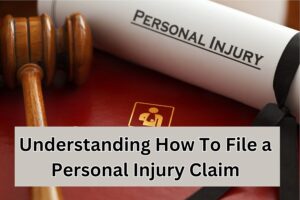When Can an Attorney Appear for You If You Can’t Be Physically Present in Court?

Most people who are charged with a legal case often ask the question whether their attorneys can appear for them in court. However, the answer to this question varies in every situation.
Some cases in court will strictly demand the accused person to be present in the legal proceedings, and there are others that a legal counsel is allowed to represent the defendant without the defendant’s presence.
Knowing this legal topic is essential as failure to show up in a judicial proceeding when the court requires it can cause you to be issued with a bench warrant. So for you to avoid that kind of situation, here are the types of cases that the court can allow your attorney to appear for you and the ones that will need your presence.
Felony Cases
A court proceeding tackling a felony case is strict when it comes to the attendance in court of the accused. The defendant should participate in every stage of the legal proceedings from the arraignment to the sentencing to avoid legal consequences that come with failure to attend.
The reason for this requirement is that bail is often an issue in felony cases. There are bail reviews that can lead a judge to demand a bail or increase its amount if it was already posted.
However, there’s also an exception to this rule. A defendant can get his/her lawyer to represent him/her in court if a written waiver of his/her constitutional right to participate in court proceedings is completed in open court.
Misdemeanor Cases
There are instances in a misdemeanor case that an attorney can appear for the defendant if the defendant can’t be present in a court proceeding. However, it’s a must to take note of these exceptions.
Domestic Violence
The court requires a defendant charged with a domestic violence case to be present at the arraignment and sentencing phases. The reason behind this rule is that in the arraignment and sentencing stage, the court generally issues a protective order. The defendant should know what the details or conditions of such an order.
Violation of a Protective Order
Similar with domestic violence cases, an individual accused of violating a protective order also needs to participate in the arraignment and sentencing stages due to the issue of protective order.
Plea Proceedings
In plea proceedings, the court can allow the lawyer to enter the plea for the client if the defendant can’t participate in that court date. However, the legal counsel should present a Thal Waiver for the court to allow it.
The Thal Waiver is a guarantee that the accused person understands what might be the outcome of the offer and his/her constitutional rights to a fair trial. However, some courts don’t allow a Thal Waiver and will demand the defendant to participate in the plea proceedings.
That’s why before you enter a plea, it’s a must to get a lawyer who professionally knows the judge handling the proceedings to avoid complication of your legal case.
DUI Cases
Some judges can “sometimes” enable a defendant charged with a Driving Under the Influence case to not participate in some stages of the court proceedings. However, most judges will require an accused person to attend the arraignment, plea, and the handing down of the sentence.
Takeaway
A defendant should have the right knowledge about the case charged against him/her. That’s why the advice of a legal counsel is a must to help him/her through the legal process. If you want to get a lawyer to handle your case, you can contact legal counsels in sites like Attorneys On Demand for that purpose.






